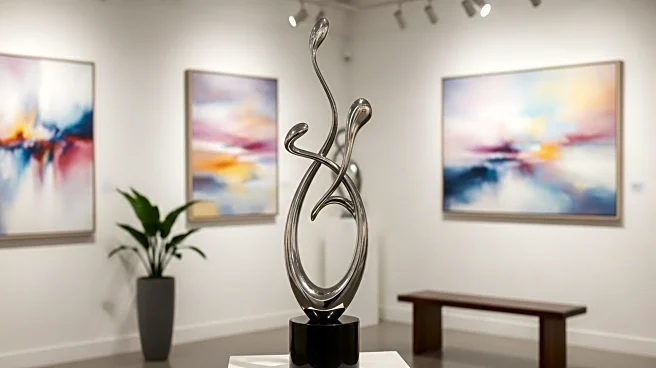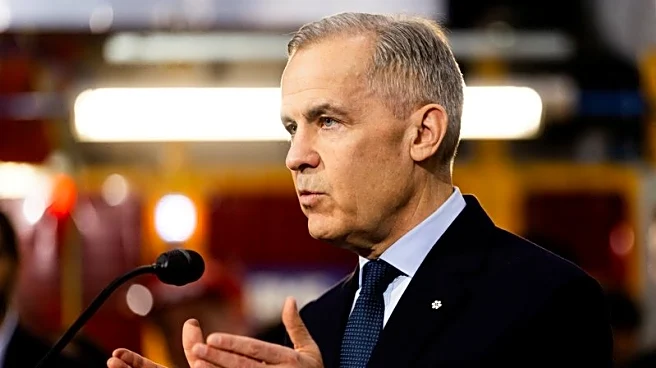What's Happening?
Upsilon Gallery, led by German-Argentine dealer Marcelo Zimmler, is set to open a new location in Milan on November 18. This marks the gallery's first continental European space, situated in a 200-square-meter venue near Via Monte Napoleone, a key area for fashion and luxury. The move is part of a broader trend of galleries exploring Milan as a potential global art capital, joining others like Thaddaeus Ropac and Cardi Gallery. Zimmler cites Milan's cultural and financial significance, along with recent tax reforms, as factors driving this expansion. Italy's reduction of VAT on art sales from 22% to 5% and the influx of wealthy British residents due to tax changes are seen as positive influences on the art market.
Why It's Important?
The opening of Upsilon Gallery in Milan highlights the city's growing appeal as a hub for the global art market. The reduction in VAT on art sales positions Italy as an attractive destination for art dealers and collectors, potentially boosting sales and investment in the sector. Milan's proximity to other major European cities like Zurich and Paris further enhances its strategic importance. The gallery's expansion reflects a broader trend of integrating art with luxury and design industries, which could lead to increased collaboration and innovation within these sectors. This development may also signal a shift in the art market dynamics, with Milan emerging as a key player.
What's Next?
Upsilon Gallery plans to debut its Milan location with an exhibition featuring Osvaldo Mariscotti's Valley series, coinciding with shows in London and New York. The gallery aims to leverage its new space for various events and collaborations, aligning art with luxury and design industries. Future exhibitions are expected to coincide with major events like Salone del Mobile, potentially attracting a diverse audience. The success of this venture could encourage other galleries to consider Milan as a viable market, further solidifying its status as a global art capital.
Beyond the Headlines
The integration of art with luxury and design industries in Milan could lead to new business models and partnerships, enhancing the cultural landscape. Upsilon Gallery's approach of using gallery spaces for events and collaborations reflects a shift towards experiential art consumption. This trend may influence how galleries operate, focusing on creating immersive experiences rather than solely relying on direct sales. The long-term impact of these changes could redefine the relationship between art and commerce, fostering innovation and cross-industry collaboration.












